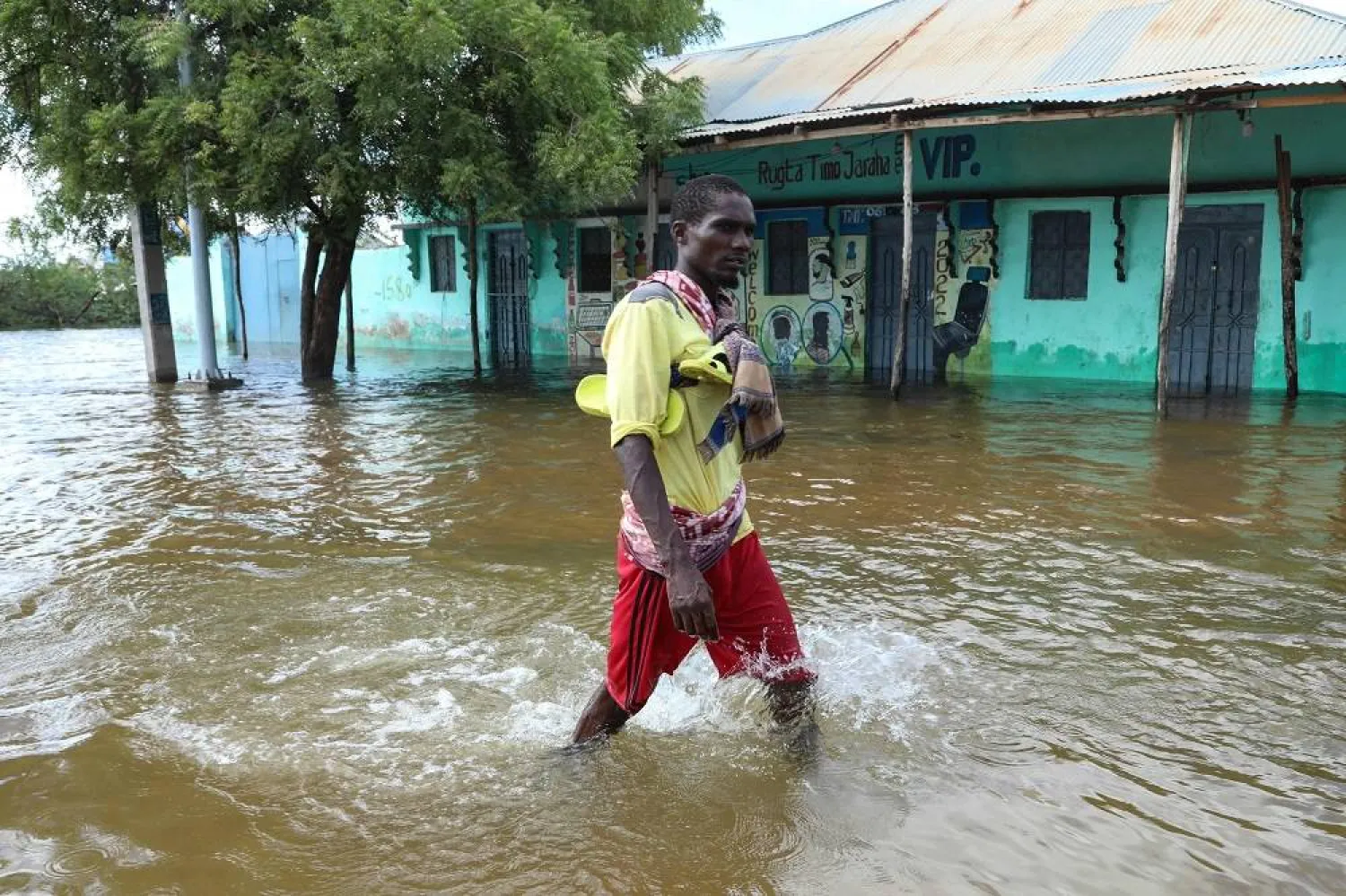Flash flooding in central Somalia has killed 22 people and affected over 450,000, the UN's humanitarian agency OCHA said Sunday, after the Shabelle River burst its banks, forcing tens of thousands out of their homes.
Heavy rainfall earlier in the week sent water gushing into homes in Beledweyne town in Hiran region, submerging roads and buildings as residents grabbed their belongings and waded through flooded streets in search of refuge.
"Initial estimates indicate that the flash and riverine floods across Somalia have affected at least 460,470 people, of whom nearly 219,000 have been displaced from their homes mainly in flood-prone areas, and 22 killed," the UN's Office for the Coordination of Humanitarian Affairs said.
The floods "have left a trail of destruction... inundating homes and farmland, washing away livestock, temporarily closing schools and health facilities, and damaging roads," the agency said in a situation report.
The disaster comes on the heels of a record drought that has left millions of Somalis on the brink of famine, with the troubled nation also battling an extremist insurgency for decades.
Residents told AFP earlier that the floods have become a familiar ordeal to many of them, with experts saying that extreme weather events are happening with increased frequency and intensity due to climate change.
Fartun Ali -- not her real name -- said it was her fifth time fleeing flash flooding in Beledweyne.
"Whenever the river breaks the banks, we flee," the 35-year-old mother of eight told AFP.
East and central Africa often suffers from extreme weather during the rainy seasons.
Earlier this month, 135 people were killed and more than 9,000 left homeless after heavy rains lashed Rwanda, triggering floods and landslides in several parts of the hilly nation.
More than 400 people lost their lives due to torrential downpours, floods and landslides last week in the eastern Democratic Republic of Congo.
In May 2020, at least 65 people died in Rwanda as heavy rains pounded the region, while at least 194 deaths were reported in Kenya.
At the end of 2019, at least 265 people died and tens of thousands were displaced during two months of relentless rainfall in several countries in East Africa.
The extreme downpours affected close to two million people and washed away tens of thousands of livestock in Burundi, Djibouti, Ethiopia, Kenya, Somalia, South Sudan, Tanzania and Uganda.









